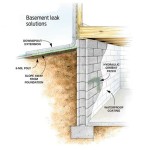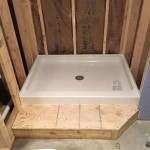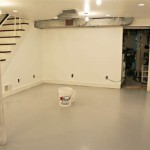Simple Floor Plans With Basement: Essential Aspects
A basement can add significant value and functionality to a home, providing extra living space, storage, or a dedicated area for hobbies. When designing a floor plan with a basement, it's crucial to consider these essential aspects:Space Planning
Determine the desired purpose of the basement and allocate space accordingly. Consider creating separate zones for living areas, storage, utility rooms, and hobbies. Ensure that the layout allows for comfortable circulation and easy access to all spaces.
Natural Lighting
Introduce natural light into the basement by incorporating windows or a walk-out door. This can significantly enhance the ambiance and make the space feel more inviting. Consider adding skylights above the ground-level floor to provide additional illumination.
Ventilation
Proper ventilation is essential for a healthy basement environment. Install exhaust fans and vents to ensure proper air circulation and prevent moisture buildup. This helps reduce the risk of mold growth and ensures the space is comfortable to occupy.
Access and Staircases
Provide convenient and safe access to the basement. Consider the location and design of the staircase, ensuring it meets safety codes and provides an easy way to transport items up and down. Staircase lighting should illuminate the steps adequately.
Utilities and Storage
Plan for the necessary utilities in the basement, including plumbing, electrical, and heating systems. Designate specific areas for storage to keep the space organized and clutter-free. Consider incorporating built-in storage solutions to maximize space utilization.
Egress
In case of an emergency, it's crucial to have a safe and accessible egress from the basement. Consider adding an exterior door or emergency window that provides an escape route. This is a critical safety feature that must be included in the floor plan.
Height and Ceiling
When designing a basement floor plan, pay attention to the height of the ceiling and the overall clearance. Ensure that the space is high enough to allow comfortable movement and that there is adequate headroom. Avoid creating areas with low ceilings that may feel cramped.
By incorporating these essential aspects into your floor plan, you can create a functional and inviting basement that complements the rest of your home. Consider consulting with an architect or designer for professional advice and to ensure compliance with building codes and regulations.
Simple House Floor Plans 3 Bedroom 1 Story With Basement Home Design

Basement Floor Plans How To Make A Good Plan For House

Basement Floor Plans Types Examples Considerations Cedreo

Basement Floor Plans Types Examples Considerations Cedreo

The Basement Floor Plan Making It Lovely

Basement Floor Plan

How To Plan For A Finished Basement Chiefblog

How To Create A Great Living Space For Finished Basement Layout

House Plan 51697 Traditional Style With 1736 Sq Ft 3 Bed Ba

Basement Floor Plans
See Also








